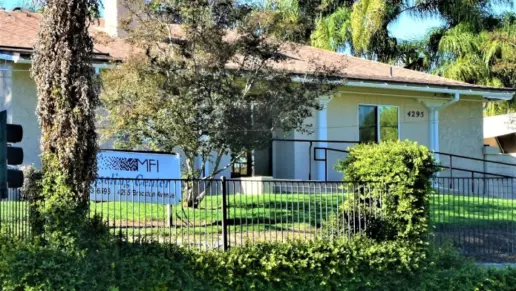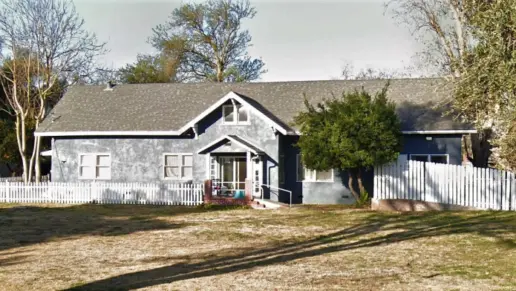About Passages
Passages Ventura is an addiction treatment center for adults in Port Hueneme, California. Their treatment approach primarily focuses on healing the underlying conditions that lead clients to use alcohol or drugs. The services offered here include a detox program, a residential program, an outpatient program and sober living homes. Clients can call their number or fill out a confidential form to get started with treatment.
The underlying causes they focus on are chemical imbalance, things clients believe that aren’t true, events of the past haven’t been reconciled and current conditions clients can’t cope with. Staff members on the team are addiction specialists who are trained to treat these issues.
One of the things I like about this facility is they have unique holistic treatment methods that patients can receive. Some treatments available to clients include acupuncture, massage, hypnotherapy and personal training. They combine these treatments with evidence based solutions such as individual and group therapy.
Individual counseling sessions help guide clients toward understanding the underlying cause of their addiction. The therapeutic approaches that counselors will use are family systems techniques and cognitive behavioral therapy (CBT). A unique thing about Passages Ventura is clients can receive multiple one-on-one therapy sessions per week.
The facility believes this approach provides clients a chance to process their issues more in-depth. Group treatments will focus on various topics that can help with treating addiction, such as emotional healing, self-regulation and aftercare planning. Clients will also have access to weekly individual appointments with a doctor who will create a healthy natural detox plan and a long-term health and wellness plan.
Latest Reviews
Rehab Score
Gallery

Location
Accepted Insurance




Other Forms of Payment
Private insurance refers to any kind of healthcare coverage that isn't from the state or federal government. This includes individual and family plans offered by an employer or purchased from the Insurance Marketplace. Every plan will have different requirements and out of pocket costs so be sure to get the full details before you start treatment.
Self-pay involves paying for treatment out of your own pocket. You can use savings or credit, get a personal loan, or receive help from family and friends to fund your treatment. If you don't have insurance or your insurance plan doesn't cover a specific program, self-pay can help ensure you still get the care you need.
Military members, veterans, and eligible dependents have access to specific insurance programs that help them get the care they need. TRICARE and VA insurance can help you access low cost or no cost addiction and mental health treatment. Programs that accept military insurance often have targeted treatment focused on the unique challenges military members, veterans, and their families face.
Addiction Treatments
Levels of Care
Treatments
The goal of treatment for alcoholism is abstinence. Those with poor social support, poor motivation, or psychiatric disorders tend to relapse within a few years of treatment. For these people, success is measured by longer periods of abstinence, reduced use of alcohol, better health, and improved social functioning. Recovery and Maintenance are usually based on 12 step programs and AA meetings.
Drug rehab in California teaches participants constructive ways to stay clean and sober. Treatment revolves around helping individuals stop using the substance they are addicted to and learn healthy habits to avoid relapse.
Opioid rehabs specialize in supporting those recovering from opioid addiction. They treat those suffering from addiction to illegal opioids like heroin, as well as prescription drugs like oxycodone. These centers typically combine both physical as well as mental and emotional support to help stop addiction. Physical support often includes medical detox and subsequent medical support (including medication), and mental support includes in-depth therapy to address the underlying causes of addiction.
Substance rehabs focus on helping individuals recover from substance abuse, including alcohol and drug addiction (both illegal and prescription drugs). They often include the opportunity to engage in both individual as well as group therapy.
Programs


Clinical Services
Research clearly demonstrates that recovery is far more successful and sustainable when loved ones like family members participate in rehab and substance abuse treatment. In order to heal the damaged interpersonal relationships often caused by addiction, Passages Malibu offers Marriage & Family Therapy as one of the traditional treatment methods. Genetic factors may be at play when it comes to drug and alcohol addiction, as well as mental health issues. Family dynamics often play a critical role in addiction triggers, and if properly educated, family members can be a strong source of support when it comes to rehabilitation.
Hypnotherapy (aka guided hypnosis) can be used as a therapeutic modality to treat substance use, especially in terms of quitting smoking cigarettes (nicotine). Clinical hypnotherapists help clients turn their attention inward, accessing unconscious or subconscious material, and then make suggestions that are healthier for the individual. Hypnotherapy is used effectively as part of our drug and alcohol addiction treatment program by reinforcing positive behavioral changes sought by those seeking to break their addictions. Hypnotherapy is used effectively as part of the drug and alcohol addiction treatment program by reinforcing positive behavioral changes sought by those seeking to break their addictions.Hypnotherapy is utilized effectively as part of our drug and alcohol addiction treatment program by reinforcing positive behavioral changes sought by those seeking to break their addictions. The process can help clients make deep, positive, and lasting changes, including ceasing addictive habits.
In individual therapy, a patient meets one-on-one with a trained psychologist or counselor. Therapy is a pivotal part of effective substance abuse treatment, as it often covers root causes of addiction, including challenges faced by the patient in their social, family, and work/school life.
Motivational Interviewing (MI) is a clinical approach to helping people with substance abuse issues and other conditions shift behavior in positive ways. It is more goal-oriented than traditional psychotherapy, as MI counselors directly attempt to get clients to consider making behavioral change (rather than wait for them to come to conclusions themselves). Its primary purpose is to resolve ambivalence and help clients become able to make healthy choices freely.
Amenities
-
Private Setting
-
Yoga Studio
-
Wifi
-
Private Rooms
-
Hiking
Accreditations

The Joint Commission, formerly known as JCAHO, is a nonprofit organization that accredits rehab organizations and programs. Founded in 1951, the Joint Commision's mission is to improve the quality of patient care and demonstrating the quality of patient care.
Joint Commission Accreditation: Yes
Accreditation Number: 488313
Contact Information
241 Market Street
Port Hueneme, CA 93041










